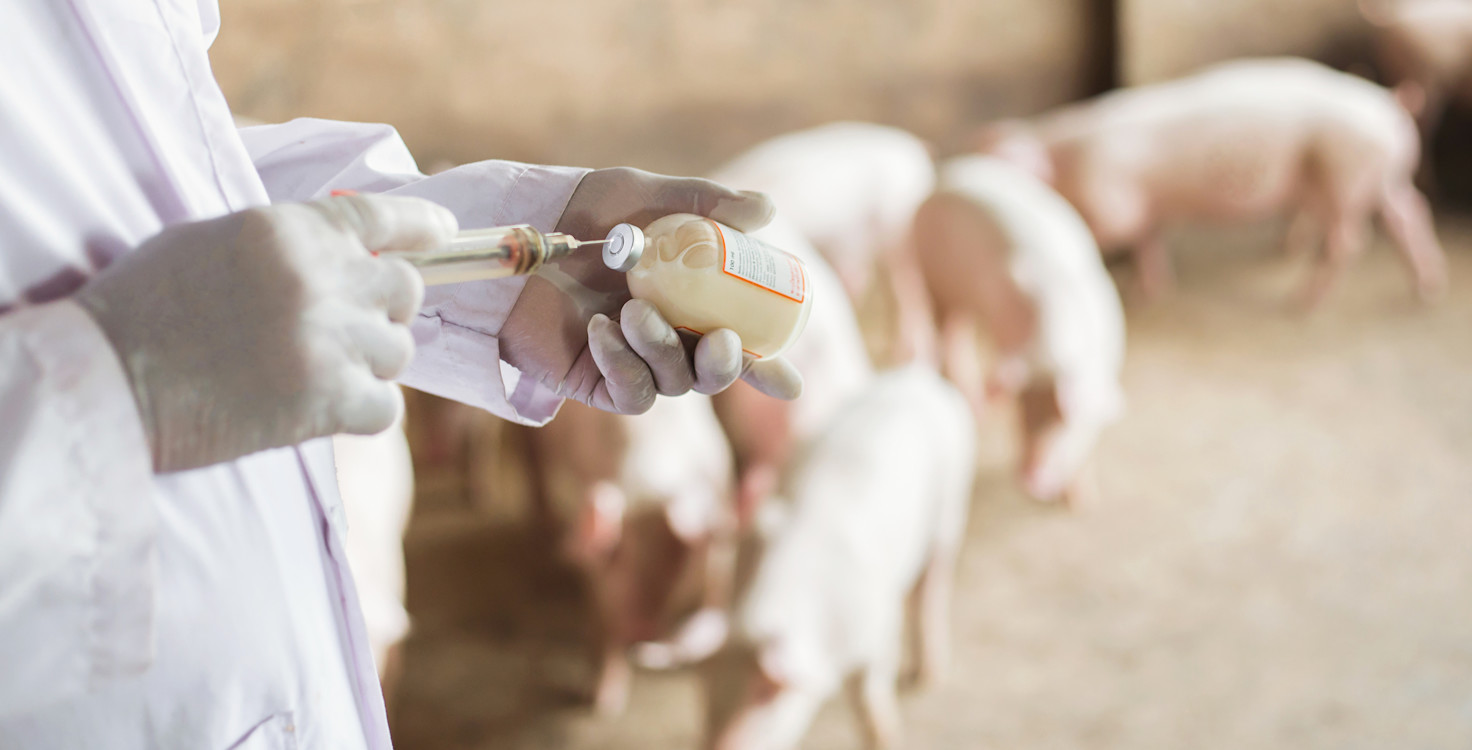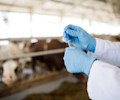71-member group asks fast food companies to disclose antibiotic use and reduction policies in animal protein supply chains, aligned to World Health Organization guidelines to tackle antimicrobial resistance (AMR).
New engagement led by the FAIRR Initiative to address key driver of $100 trillion antimicrobial resistance threat to global economy.
Companies include McDonald’s, Yum! Brands (KFC & Pizza Hut) and Restaurant Brands International (Burger King).
Investor group asks for disclosure including quantity and type of antibiotics used, and progress towards antibiotics reduction targets.
Engagement builds off previous successful FAIRR engagements with the fast food restaurant industry.
(London, 12th July 2023): 71 institutional investors and investor representatives representing $15.2 trillion in combined assets have joined aRestaurant Antibiotics Engagement led by the $70 trillion-backed FAIRR investor network.
The engagement will focus on twelve North American fast food restaurant companies, many with a global reach, including McDonald’s, Yum! Brands (owners of KFC and Pizza Hut) and Restaurant Brands International (owners of Burger King).
As some of the world’s largest purchasers of animal protein, these companies source meat, eggs, fish and dairy from around the world and could be exposed to financially material regulatory and reputational risks from inadequate policies for managing antibiotic use in their supply chains.
Members of the engagement, which includes Schroders, Legal and General Investment Management, HESTA, EOS at Federated Hermes and Green Century, will ask the companies to disclose information in line with World Health Organization (WHO) guidelines for addressing the risk of AMR in animal agricultural supply chains.
Companies will be asked to demonstrate sufficiently rigorous existing antibiotic policies and provide evidence of implementation through target setting and auditing. It also calls for policies to cover all key proteins rather than limiting to subsets – such as poultry – which has been a common approach to date, and to disclose the types of antibiotics in use and in what quantity.
As a first step, the investor group will write to the companies with a request to provide additional information followed by company dialogues until December 2023. FAIRR will publish the first formal company assessments in Spring 2024.
This new effort builds off previous FAIRR-led investor success engaging the global restaurant industry on AMR. An engagement between 2016 and 2019 with 20 fast food restaurants resulted in 19 out of 20 disclosing antibiotic policies, up from one at the outset. However, in the absence of sustained investor pressure over the last few years, company efforts have faltered.
Jeremy Coller, Founder, the FAIRR Initiative, said:
“Around the world, more antibiotics are given to animals than to humans. By overusing these vital drugs we are making them less effective against deadly diseases, a huge risk to both public health and, as the Covid pandemic showed, financial stability. It’s a $100 trillion threat to the world economy, but one we can avoid if fast food giants take a lead by cleaning up their supply chains – a process that starts with them committing to making these long over-due disclosures to their investors.”
Dr Emma Berntman, Senior Engagement Specialist, the FAIRR Initiative said:
“Just when food businesses should step up ambition levels to ensure only moderate and necessary use of antibiotics in their livestock supply chains, FAIRR analysis shows company policies have stagnated or taken backward steps.
“Some producers are applying antibiotic reduction policies to only one geographic region, or only one animal species – such as chickens but not cows or pigs. And some are not providing the data on antibiotic use that helps investors judge the success of existing policies in reducing risk.
“Investors and companies will need to work constructively and quickly together to strengthen policies. This includes better reporting on types and volumes of antibiotics being used, and policies to minimise non-therapeutic usage across all types of animal species and in all regions.”
Bruce Duguid, Head of Stewardship, EOS at Federated Hermes, said
“Branded fast food chains face the prospect of ever tightening AMR expectations from both regulators and their customer base. On behalf of investors, we urge the companies in FAIRR’s new engagement to take action to preserve their reputation and security of their supply chains by reducing dependency on the widespread use of antibiotics in meat production.”
Andrea Ranger, Shareholder Advocate, Green Century Capital Management, said:
“FAIRR's new engagement presents a valuable opportunity to work with global brands and mitigate the multifaceted risks associated with antibiotic overuse in supply chains. We encourage these companies to implement measures to reduce their reliance on antibiotics, ensure long-term sustainability and minimise the negative impacts of protein production.”
Kim Farrant, GM Responsible Investment, HESTA, said:
"Building off the success of FAIRR’s previous engagement with the quick services restaurant sector, HESTA is putting systemic issues, such as the delicate balance between public health and company profits on the agenda. We are urging boards and management to consider the broader impacts on the economy and health system, where many of our members work.
"Through this commitment, HESTA is aiming to drive positive change, influencing responsible business practices, and fostering sustainable growth for the betterment of communities and economies."
Kim Farrant, GM Responsible Investment, HESTA, said:
"Building off the success of FAIRR’s previous engagement with the quick services restaurant sector, HESTA is putting systemic issues, such as the delicate balance between public health and company profits on the agenda. We are urging boards and management to consider the broader impacts on the economy and health system, where many of our members work.
"Through this commitment, HESTA is aiming to drive positive change, influencing responsible business practices, and fostering sustainable growth for the betterment of communities and economies."
Katie Frame, Social Engagement Lead at Schroders, said:
“To tackle the AMR challenge, we must address both drivers and solutions. The development of new antibiotics and alternative treatments needs to be enhanced, while the mismanagement of antibiotic use in both human and animal health needs to be addressed.
“FAIRR's new collaborative engagement initiative with the North American quick service restaurant sector is a crucial step in ensuring prudent antibiotic use in animal agriculture. By curbing the overuse and misuse of antimicrobials in the animal agriculture supply chain, we can reduce and seek to prevent the potential risks posed by AMR, which we believe will ultimately aid in protecting the global economy and public health.”
Media Contact
For more information, including interviews and comments, please contact:
Mike Marshall, ESG Communications
t: + 44 (0)7728 816 426 | e: mikem@esgcomms.com
The twelve companies targeted are: Bloomin’ Brands, Brinker International, Darden Restaurants, Domino’s Pizza Inc, McDonald’s Corporation, Papa John’s International, Restaurant Brands International (owners of Burger King), Starbucks, Texas Roadhouse, The Cheesecake Factory, The Wendy’s Company, Yum! Brands (owners of KFC and Pizza Hut).
Restaurant Antibiotics Engagement Assessment Framework
Protein exposure
1.1 Company discloses its level of exposure to key purchased proteins.
Ambition level of policy
2.1 Company discloses what antibiotic categories are covered by its policy for each protein type.
2.2 Company discloses the proportion of suppliers/restaurants its policy covers.
Policy implementation
3.1 Company tracks and discloses the quantity of antibiotics used in its supply chain.
3.2 Company discloses evidence of auditing to ensure compliance with its policy.
3.3 Company discloses how it manages non-compliance with its policy.
Forward looking target setting
4.1 Company discloses an antibiotics reduction target.
4.2 Company discloses what proportion of its suppliers/restaurants its target covers.
4.3 Company discloses evidence of progress towards its target.
About FAIRR
The FAIRR Initiative is a collaborative investor network, founded by Jeremy Coller, with a membership of $70 trillion in collective assets of support. FAIRR works with institutional investors to define the material ESG issues linked to intensive livestock and fish farming systems and provide them with the tools necessary to integrate this information into their asset stewardship and investment decisions. This includes the Coller FAIRR Index, the world’s first comprehensive assessment of the largest global animal protein companies on environmental, social and governance issues. Visit www.fairr.org and follow @FAIRRInitiative.











